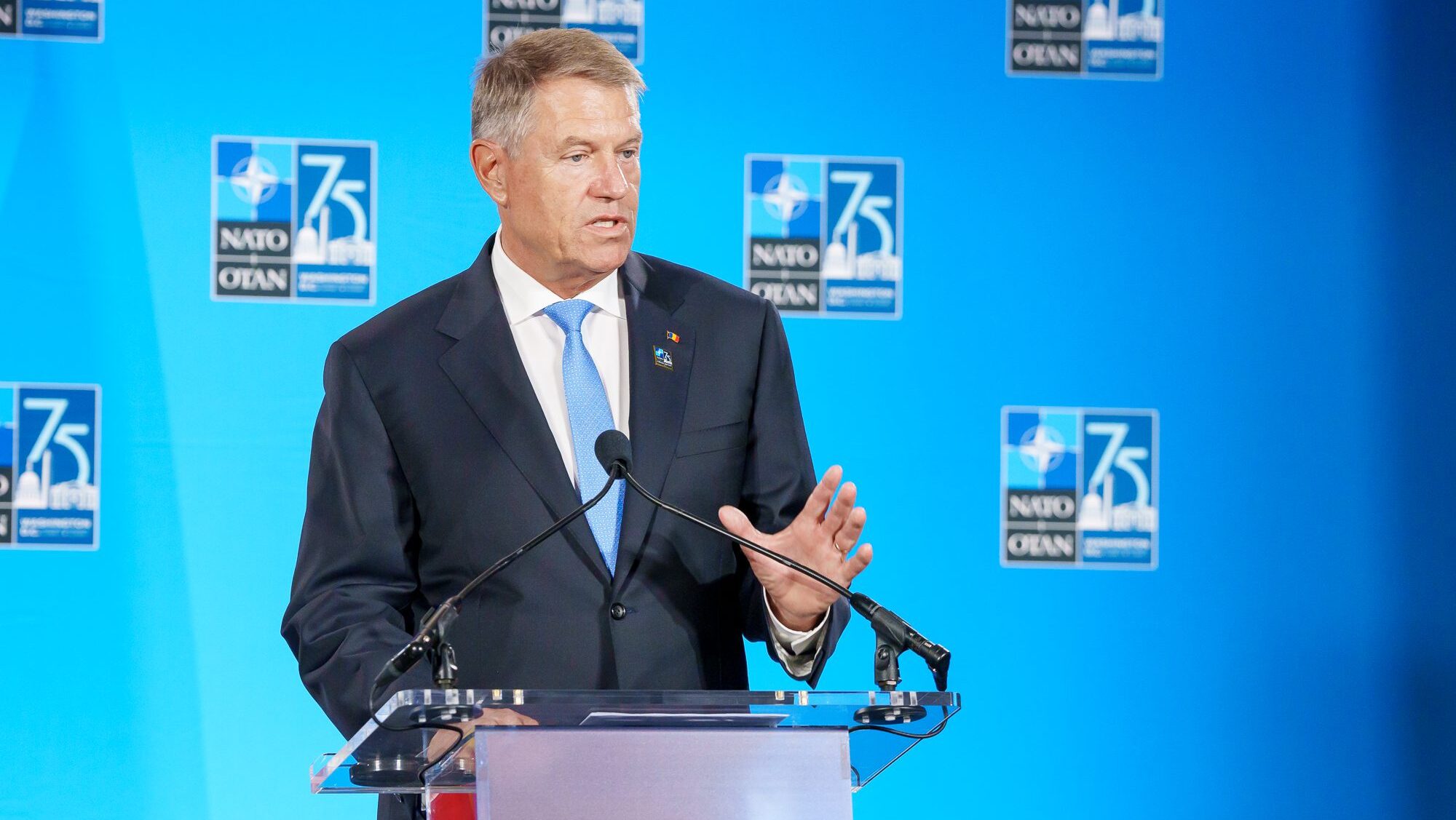
Romanian President Klaus Iohannis
Photo: Klaus Iohannis on Facebook, 10 July 2024
On Monday, February 3rd, Romanian President Klaus Iohannis—a former leader of the center-right PNL (EPP)—ruled out resigning before the repeated presidential election in May, despite most of the country considering him illegitimate after his term ended with no replacement due to the annulled election last year.
During a press conference at the EU’s informal defense summit in Paris, Iohannis downplayed the continuous calls for resignation from opposition parties on both sides as having merely “populist” or opportunistic “electoral” reasons behind them.
The president believes that his decision to stay as interim head of state—retroactively supported by a Constitutional Court (CCR) decision—is the only right choice according to the constitution. The only problem is that the Romanian constitution doesn’t have clear provisions for such an unprecedented situation as the canceled election.
The constitution states that the president is elected for a term of five years and remains in office until their successor is sworn in. However, it also states that the president’s term can only be extended by an absolute majority in the parliament and only in exceptional cases such as wars or disasters. In the event of death or early resignation, the Senate president should take over as interim president until the snap elections.
That’s why all four opposition parties are calling for Iohannis to resign and hand over the reins to PNL leader and Senate President Ilie Bolojan until the May elections determine a clear winner. But Iohannis won’t budge, even though the presidential palace would remain in the hands of his former party.
“I don’t think we need to talk about this,” he told reporters on Monday. “I don’t see any use in prolonged discussions about whether I should have stayed or not.”
Last month, the opposition even tried to formally suspend (impeach) Iohannis through a vote in the Parliament but failed to reach the required numbers without the support of at least a dozen MPs from the establishment’s grand coalition, which includes the PNL, the socialist PSD (S&D), and the ethnic Hungarian UDMR (EPP).
The opposition includes both right-wing, Eurosceptic parties—the nationalist AUR (ECR) and two of its more extreme off-shoots, SOS Romania and POT—and the pro-EU, liberal, anti-establishment outfit USR (Renew).
Despite their vast differences, the four parties have unofficially united in their criticism of the establishment for “destroying democracy” by canceling the elections after the first round, and have been relentlessly demanding the second round be held instead of repeating the whole race from the start.
Since deciding to stay in the presidential palace, Iohannis has become a symbol of the establishment’s corruption and disregard for democracy. His approval rating was already the lowest in the democratic history of the country, ending his second term at an abysmal 16% last year.
Replying to the president’s remarks in Paris, USR leader Elena Lasconi once again described Iohannis as “illegitimate,” adding that even the country’s communist dictator might have been more popular than him. “I think even Ceaușescu wasn’t as hated as Klaus Iohannis is,” Lasconi said.
The December elections were annulled by the Constitutional Court after the first-round results put the independent nationalist candidate Călin Georgescu in first place and Lasconi in second—meaning none of the establishment parties managed to advance to the second round.
Polls show that two-thirds of Romanians clearly reject the court’s argument that the annulment was needed due to (still unproven) foreign interference from Russia.
The European Court of Human Rights (ECHR) has not yet issued a ruling on the legality of the decision but refused Georgescu’s request for an accelerated procedure, meaning there won’t be a decision in time for it to make any difference.
Last week, however, the Venice Commission published its own expert opinion, which states that election results should be allowed to be challenged but only in very exceptional cases and based on clear, unequivocal, and publicly available evidence of significant interference.
In other words, even Europe’s foremost international authority on democracy and constitutional law has decided that what happened in Romania wasn’t legal. Nonetheless, Iohannis keeps defending the court’s decision.
“The Venice Commission … makes some proposals on how the issues should perhaps be dealt with differently if somehow—I personally hope that the situation will not be repeated—if somehow something similar ever comes up,” the president said, adding that it is now up to the parliament to turn the recommendations into future legislation. But, of course, only after the repeated elections.
I am outraged by the usurper @KlausIohannis’ statements that calling for his resignation is ‘populism’.
— 🇷🇴 George Simion 🇲🇩 (@georgesimion) February 3, 2025
He should have left office on December 21!
To disregard huge discontent within 🇷🇴society and #VeniceCommission report reconfirms this man's contempt for Romanian people.
